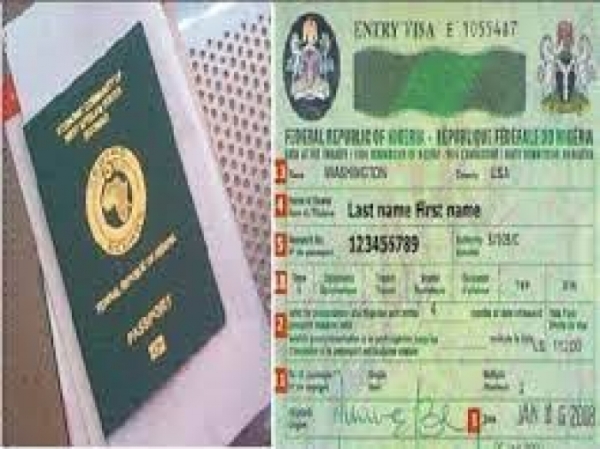The Federal Government has announced plans to discontinue its Visa-on-Arrival policy, citing inefficiencies in the current system. In its place, the government will introduce landing and exit cards, which prospective visitors will be required to complete before entering the country.
The Minister of Interior, Olubunmi Tunji-Ojo, disclosed this on Friday during the closing ceremony of a week-long capacity-building training on Advanced Passenger Information (API) and Passenger Name Record (PNR) data for national security and law enforcement. The event was held at the headquarters of the Nigeria Immigration Service (NIS) in Abuja.
Tunji-Ojo revealed that individuals of interest have been attempting to bypass the new systems implemented at Nigeria’s five international airports. Intelligence reports indicate that some of these individuals are now traveling to neighboring countries to enter Nigeria through its extensive land borders. In response, the minister stated that the ministry will collaborate with relevant partners to deploy the API/PNR system across land borders, emphasizing that Nigeria cannot become a haven for criminals.
At the event, the Comptroller General of the Nigeria Immigration Service (CGIS), Kemi Nandap, noted that the initiative stemmed from discussions with the United Nations Office on Counter-Terrorism during a meeting in Bangkok, Thailand, last year. Nandap praised the NIS for its well-trained and patriotic personnel, who are committed to serving the nation.
Objective Profiling and Automation
The Interior Minister stressed that the API/PNR system is mandatory and marks a shift from subjective to objective profiling in immigration decisions. He explained that the current visa system is largely subjective, lacking the necessary rigor for effective migration management and security.
“The visa is not just an entry approval; it is a migration management and security tool,” Tunji-Ojo said. “The current system is too subjective, which is why we are automating the entire process end-to-end. We are working towards launching the e-visa solution by March 1, or at the latest, April 1. This system will integrate with Interpol and criminal records databases to ensure thorough background checks before visas are issued.”
He added that the new system will eliminate the practice of foreign attachés approving and issuing visas, ensuring that all applicants are thoroughly screened. “Nigeria cannot be a destination for wanted criminals. We are committed to making sure our country is not a safe haven for any criminal,” he stated.
Integrated Immigration Solutions
The minister also highlighted plans to integrate various immigration solutions into a centralized data center. This will enable seamless communication between different systems, ensuring that all immigration decisions are made with real-time input from Interpol, criminal records systems, and other background-checking agencies.
“We want to harmonize our databases and ensure that all solutions work together, rather than operating in silos,” Tunji-Ojo said. “For any immigration-related decision, it will be impossible to grant approvals without clearance from relevant security agencies. Security is not an area where you can afford to be 99.9% correct.”
Landing and Exit Cards
Under the new system, visitors will be required to fill out landing cards, which will be integrated with the visa and passport systems, as well as global background-checking databases. This data will be shared with other agencies worldwide to enhance security and streamline the immigration process.
Tunji-Ojo emphasized the need for accountability in immigration management. “It is unacceptable that the NIS cannot instantly provide the number of foreigners in Nigeria. It is unacceptable for someone to enter the country, disappear, and become untraceable. It is unacceptable for immigration policies to be abused, or for individuals to wait six months to regularize their residency. These practices are not tolerated anywhere in the world,” he said.
Reforms for National and International Security
The minister outlined that the reforms, set to take effect between March 1 and April 1, aim to safeguard Nigerians, uphold the country’s responsibilities in the international community, and contribute to global peace. “These reforms are necessary to protect our people, maintain our reputation among nations, and fulfill our role in promoting international security,” he concluded.


